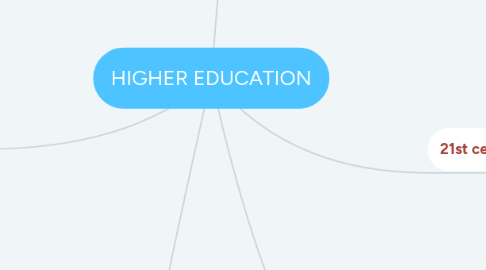
1. Constructivism
1.1. Student-centered
1.1.1. Students learn themselves
1.1.1.1. Active learning
1.1.2. Teacher is a guide
1.1.2.1. Encourages curiosity and discussion
1.1.2.1.1. Discovery learning
1.1.3. Student-student interactions
1.2. Schemata
1.2.1. Knowledge building
2. Social learning theory
2.1. Reciprocal determinism
2.1.1. Observation
2.1.2. Imitation
2.1.3. Modeling
2.2. Behavior
2.2.1. Skills
2.2.2. Practice
2.2.3. Self-efficacy
2.3. Environmental factors
2.3.1. Social norms
2.3.2. Access in community
2.3.3. Influence on others
2.4. Personal factors
2.4.1. Knowledge
2.4.2. Expectations
2.4.3. Attitudes
3. Experiental learning
3.1. Principles
3.1.1. Significant learning takes place when the subject matter is relevant to the personal interests of the student
3.1.2. Learning which is threatening to the self (e.g., new attitudes or perspectives) are more easily assimilated when external threats are at a minimum
3.1.3. Learning proceeds faster when the threat to the self is low
3.1.4. Self-initiated learning is the most lasting and pervasive.
3.2. Features
3.2.1. Personal involvement
3.2.2. Self-initiated
3.2.3. Evaluated by learners
3.2.4. Pervasive effects on learners
3.3. Teacher's role
3.3.1. Setting a positive climate for learning
3.3.2. Clarifying the purposes of the learner(s)
3.3.3. Organizing and making available learning resources
3.3.4. Balancing intellectual and emotional components of learning
3.3.5. Sharing feelings and thoughts with learners but not dominating
4. 21st century skills
4.1. Thinking
4.1.1. Critical thinking
4.1.2. Creative thinking
4.1.3. Problem solving
4.2. Communication
4.2.1. Collaboration/Teamwork
4.2.2. Leadership
4.3. Literacy
4.3.1. Media literacy
4.3.2. Technological literacy
4.3.3. Information literacy
4.3.3.1. Bloom's Taxonomy
4.3.3.1.1. Applying information
4.3.3.1.2. Analyzing information
4.3.3.1.3. Evaluating information
4.3.3.1.4. Creating
4.4. Flexibility
4.4.1. Adaptability to new circumstances
4.4.2. Being open to new ideas
4.4.3. Looking at issues from different angles
5. Gardner's multiple intelligences
5.1. Better learning
5.1.1. Increasing students' motivation
5.1.1.1. Addressing different learning styles
5.1.1.2. Diversifying materials and activities
5.1.2. Developing different skills

